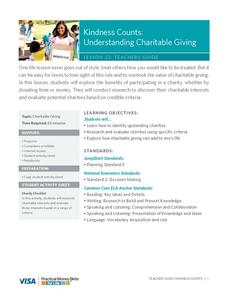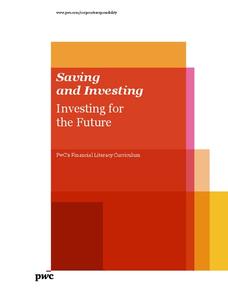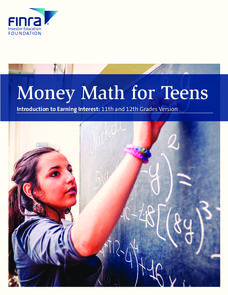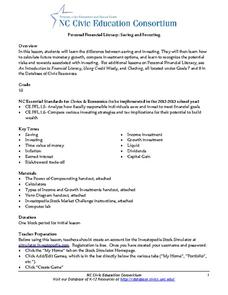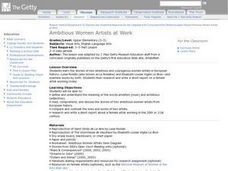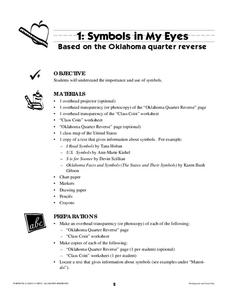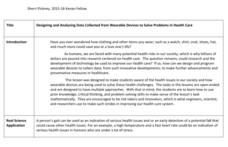Curated OER
Debate Topics and Ideas
Students examine both sides of arguments surrounding given debates. They use the internet and other research to collect information to support their stand on the controversial issue. Students debate their chosen topic. This lesson plans...
Curated OER
Shopping the Sunday Circular
Pupils demonstrate an understanding of price-per-unit mathematics. In this computation lesson, learners accurately figure the unit price of grocery items. They create a chart and record the item, the price, the size and the cost per item.
Curated OER
Where Does All the Money Go?
Students explore the concept of uses for money. In this uses for money lesson, students discuss ways in which money can be utilized such as spending, saving, investing, donating, etc. Students discuss the differences between needs and...
Curated OER
A Visit to the Mint
Emerging consumers recognize the types and denominations of U.S. currency. They listen to a guest speaker (if possible) and view a video. They create their own money using styrofoam and a toothpick for engraving. Consider creating a...
Visa
Kindness Counts: Understanding Charitable Giving
Financial literacy is generally focused on personal spending and saving, but consider an opportunity to talk to your pupils about how charitable giving can also factor into money management and how it can enhance life for both oneself...
PwC Financial Literacy
Saving and Investing: Investing for the Future
A fine lesson on saving and investing is here for you and your middle schoolers. In it, learners explore the values of time and money, and discover how small amounts of money invested over time can grow into a large "pot of gold." They...
National Wildlife Federation
Green Green Revolution
School budgets don't have a lot of extra money, so when students propose saving the district money, everyone jumps on board. The first activity in the series of 21 introduces the concept of an energy audit. Scholars form an eco-action...
Curated OER
Fractions - Equal or Not
A fabulous lesson on fractions awaits your young mathematicians. In it, learners are invited to explore the world of fractions by accessing websites that have educational activities and worksheets embedded in them. Some excellent,...
SaveandInvest.org
Introduction to Earning Interest: Grades 9-10
Does your bank pay you for allowing them to hold your money? The lesson covers three different ways your money can make money. Topics include certificates of deposit, statement savings accounts, and money market accounts.
SaveandInvest.org
Introduction to Earning Interest: Grades 11-12
Does your bank pay you for allowing them to hold your money? Class members investigate three different ways money can make more money. Topics include certificates of deposit, statement savings accounts, and money market accounts. This...
Curated OER
"In God We Trust": The Camden Man Who Put the Missing Motto on the Dollar Bill
Here is a fascintating lesson which relates how the motto "In God We Trust" came to appear on all US currency. It turns out that a man from Arkansas came up with the idea and petioned his congressman and President Eisenhower himself to...
Illustrative Mathematics
Who Has the Best Job?
Making money is important to teenagers. It is up to your apprentices to determine how much two wage earners make with their after school jobs. Participants work with a table, an equation, and a graph and compare the two workers to see...
Federal Reserve Bank
Less Than Zero
Perry the penguin wants to buy a new scooter, but he doesn't have any funds! Walk your kids through the short book Less Than Zero, and have them track his borrowing, spending, and saving on a line graph while you read. Pupils will learn...
Virginia Department of Education
Practical Problems Involving Decimals
After discussing decimals and "going shopping" in the classroom, young mathematicians are given four practical word problems that require them to estimate their answers, given specific information. The highlight of the lesson is having...
Council for Economic Education
Banks and Credit Unions (Part 1)
Imagine you have money you want to save ... where do you put it? Pupils investigate the similarities and differences of banks and credit unions as they determine where exactly to place their hard-earned money. Through a WebQuest, they...
TESCCC
Place Value to 999,999
Master place value with a series of lessons that use math journals, manipulatives, and place value mats. Kids follow the instructions to represent numbers of all sizes with base ten blocks and recording sheets.
Josephson Institute
Trustworthiness
Build trust—literally—with a lesson that sparks reflection, grand conversation, and creativity. Scholars construct a trust tower out of blocks showcasing a picture that represents a good deed they have done to gain trust from their...
Florida Center for Reading Research
Multiple Meaning Words in Context
Multiple meaning words is the focus of a lesson designed to reinforce the use of context clues. Scholars listen carefully to a variety of sentences using the words pool and cast to decide which definition best fits the context. Then,...
Curated OER
Abigail’s War: The American Revolution through the Eyes of Abigail Adams
Four lessons, performed over four weeks, pay special attention to Abigail Adams. Fifth graders analyze primary and secondary sources, read texts, discuss and write about Adams' experience during the Revolutionary War—the Battle of Bunker...
Carolina K-12
Personal Financial Literacy: Saving and Investing
When should you save, and when should you invest? In considering this question, your class members will also learn about the time value of money, inflation, compounded interest, and income/growth investments. The resource also outlines...
Visa
The Influence of Advertising
Pupils become informed consumers and citizens with this lesson on the influence of advertising, identifying basic advertising techniques and discriminating between fact and claim in modern advertisements and commercials.
J. Paul Getty Trust
Ambitious Women Artists at Work
Ambition is the keyword of a lesson that focuses on the contributions made by famous female artists. Specifically looking at European artists, Luisa Roldan and Elisabeth Louise Vigee Le Brun, scholars examine a piece of their work then...
US Mint
Symbols in My Eyes
Explore the hidden meanings behind the images on US currency with this elementary school lesson on symbolism. Starting with a class discussion about symbols, children go on to brainstorm different objects that represent the Unites States...
Kenan Fellows
Designing and Analyzing Data Collected from Wearable Devices to Solve Problems in Health Care
Wearable devices have become more the norm than the exception. Learners analyze data from a sample device with a regression analysis in a helpful hands-on instructional activity. Their focus is to determine if there is a connection...
Other popular searches
- Money Lessons Giving Change
- Counting Money Lessons
- Canadian Money Lessons
- Second Grade Money Lessons
- 2nd Grade Money Lessons
- Australian Money Lessons
- Shopping Money Lessons
- Math Money Lessons
- Money Lessons Elementary
- Fun Money Lessons
- Counting Money Math Lessons
- Adding Money Amounts Lessons






